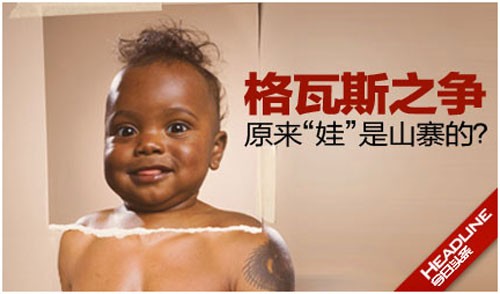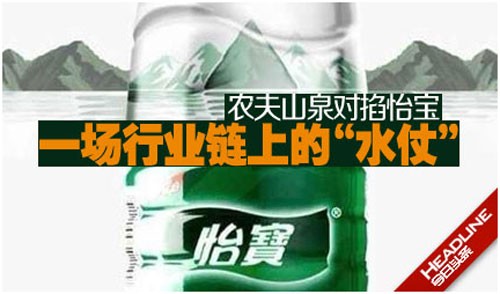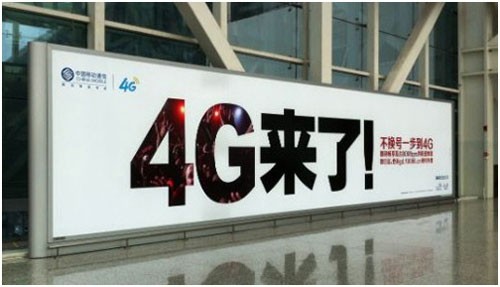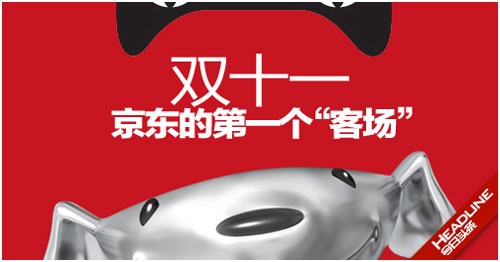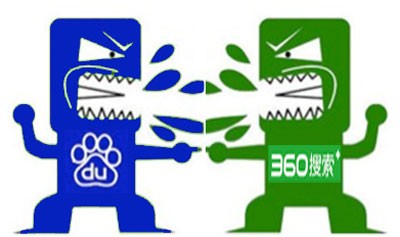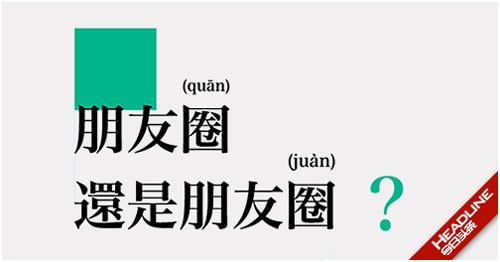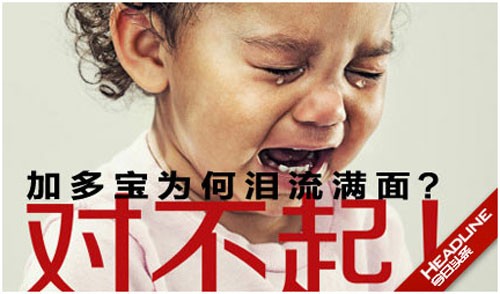
In 2013, competition between Chinese brands were extremely fierce. Some brands provoked the war, some were forced to confront. As for old enemies like Wang Lao Ji and Jia Duo Bao, they already got used to combating with each other. Social media rose to be important battle fields in recent years.
NO.1 Jia Duo Bao VS Wang Lao Ji
Wang Lao Ji is a Chinese herbal tea drink, its brand is owned by Guangzhou Wanglaoji Pharmaceutical Co., Ltd. The brand was leased to Jia Duo Bao Beverage Co., Ltd. in 1997. The lease would expire in Dec 31 2011. Jia Duo Bao Beverage managed the operation of Wang Lao Ji, after 2002, its successful marketing strategy made Wang Lao Ji the top beverage brand in China. In 2011, the total revenue of Wang Lao Ji hit 16 billion yuan (USD 2.62 billion). The brand value of Wang Lao Ji was worth 108 billion yuan (USD 17.69 billion).
Guangzhou Wanglaoji Pharmaceutical sued Jia Duo Bao Beverage for bribery to extend brand lease contract to 2020, and the court annulled the brand lease contract. This became the beginning of war between Jia Duo Bao and Wang Lao Ji. Guangzhou Wanglaoji Pharmaceutical wanted to expand Wang Lao Ji brand to a variety of health related products, such as medicinal liquor, cosmeceuticals and healthcare products, which Jia Duo Bao Beverage disagreed because it would dilute the brand value of Wang Lao Ji drink. In the end of 2011, Jia Duo Bao Beverage began eliminating Wang Lao Ji. First, they wiped out “Wang Lao Ji” in advertisement, added “Jia Duo Bao produce”. Second, they added brand name “Jia Duo Bao” on the other side of the can.
In 2013, the lawsuit between Jia Duo Bao Beverage and Guangzhou Wanglaoji Pharmaceutical continued. A ban forbade Jia Duo Bao to use any advertisement that involved “Wang Lao Ji changed its brand name to Jia Duo Bao” or one that had the same meaning. Later, Jia Duo Bao posted on Weibo crying about their incompetence of winning the lawsuit which gained public compassion. Their apologize phraseology on Weibo became a meme in 2013, many brands imitated Jia Duo Bao’s marketing strategy. In December, by Guangzhou Intermediate People’s Court first instance verdict, Jia Duo Bao Beverage lost the case and was forced to compensate 10.8 million yuan (USD 1.77 million). Jia Duo Bao Beverage would appeal to a higher court.
No.2 Wahaha VS Qiulin
Other than Chinese herbal tea and cola, Gewasi drink (Kbac Drink) joined the war of beverage in 2013. At the beginning of this year, Wahaha Gewasi spent a lot of money on the advertisement in popular TV programs such as “I am a singer” , “JSTV You are the one” etc. Hence, the brand awareness soared stunningly. In June, the traditional brand Harbin Qiulin Gewasi could not stand it anymore, and posted a series of posters on Weibo, criticizing that Wahaha copycatted their traditional century brand Gewasi. Qiulin challenged the Wahaha Gewasi from the manufacturing process to the raw material. This movement gained plenty of support from Harbin fans.
Qinghou Zong, the CEO of Wahaha made a quick response to this event and claimed that “Gewasi can be produced by anyone, but to gain the consumer acceptance is crucial”.
No.3 NongFu Spring VS Huarun Yibao
The next war is also about beverage. Nongfu Spring was entangled in a reputation crisis. In April, the Beijing Times reported that the water quality of Nongfu Spring packed water was questioned and it’s acknowledged to be even worse than tap water.
About this series of constant negative reports, Nongfu Spring attributed the blame to Huarun Yibao’s intentional attack and posted on Weibo , saying” we had reason to believe the plotter of this incident is Huarun Yibao.” One of the reasons was that on March 22th which is Water Day, Huarun Yibao sent out the flyers about national water pollution from 2008 to 2012 with an eye-catching headline “Do you dare to drink the water carried from nature?” It’s obviously that Huarun Yibao pointed to Nongfu Spring. In the same month, “the plotter” Huarun Yibao announced to sue Nongfu Spring for the reputation damage.
In the second half of the year, the battle between Nongfu and Yibao seemed to lead nowhere. But following the battle, a piece of news reported that Nongfu Spring was going to sue the Beijing Times for their false reports, claiming for 200 million yuan (USD 32.8 million) compensation.
N0.4 China Mobile VS China Unicom VS China Telecom
On December 18th, China Mobile officially introduced a new master brand “he”, which means “and”, to signal the launch of its 4G network. For 4G network, China Telecom and China Unicom will continuously use the brand “Tianyi” and “Wo” which were created in the 3G networking. A netizen jokingly summarized the brands of three main operators as “Tianyi And Wo”.
To seize the 4G networking opportunity, these three operators rolled out overwhelming campaigns. In December, China Telecom’s slogan “The faster the better. A wonderful life is approaching” appeared in land mark locations in main cities. China Unicom’s slogan was “In the 4G era, the fantasy is still in Wo”. And China Mobile who strived even harder as it lost lots of users in 3G era, put emphasis on “taking the lead”. It’s inevitable for the fight to be fierce between operators, since a big reshuffle is coming along with the 4G era.
No.5 Baidu Maps VS Autonavi
On August 28th 2013, the Baidu map announced that Baidu Navigation would be free. Baidu Navigation is a smartphone app and used to cost 30 yuan($5) in the app store. On the evening of that day, Autonavi also declared the free charge of all the products and announced the coming of product press conference in the next day. On the 29th, Baidu map dropped another bomb and made a statement that Baidu Company would refund all the previous buyers.
At the press conference held in the afternoon of 29th, a top executive responded to this action and criticized the Baidu Company that the company was an internet company whose navigation service was not professional enough to charge. Baidu should not only refund the buyers but also pay the loss to its users. The rivals began to criticize each other on the free-charge topics. Baidu Navigation official weibo published a series of posters which began with “We are sorry” and @ Autonavi at the same time. These three messages are” We are sorry. we just want our products to be user-friendly” , ”We are sorry. We are just an Internet company” and “We are sorry. We are not professional enough yet.”
Autonavi posted a Weibo saying “No need to say sorry to me. Apologize to the users who were navigated to the sewer. ”and “No need to say sorry to me. Try harder to sell the fake medicine to make more money for your buyers’ refund”
The battle became a sensation on Weibo and attracted throngs of media to cover the story. No matter how fierce the battle was, it’s always beneficial for the users and the vast masses only memorized the “free “service.
No.6 Jing Dong and T mall
In 2012, Taobao Mall changed its name to Tmall (Tian Mao) which has phonetic similarity between its English and Chinese names. At the same time, a cat was designed as its mascot because of the name– Mao, which is cat in Chinese. One year later, Jingdong(also known as JD) suddenly changed its logo and designed a dog named Joy as its mascot. A war between a cat and a dog was triggered in the online shopping fest Double Eleven, November 11th.
Before the coming of November 11th , Jingdong launched a series of posters to promote their fast speed package delivery. Since Jingdong stocked its own items, their warehouse-to-doorstep delivery service was ensured timely and efficiently—in contrast to Tmall’s relatively slower transportation. As Tmall’s merchants relied on third-party mailing company. In the last poster, a picture of “Horse Stepping on Flying Swallow” was read as a satire aiming at Jack Ma( the CEO of Taobao) whose family name means horse in Chinese. In this battle, Tmall competed on price and put on the slogan “all 50% off”.
These two companies competed not only on different strategies and slogans, but also on advertisement. On CCTV, Jingdong’s advertisement always followed Tmall’s advertisement. In the cinema they showed up alternatively. Even in the subway, their advertisements were facing opposite with each other.
No.7 Voice of China VS Supper Boys
This summer, the fierce war in the TV circle was on the verge of explosion. Among the battles the most exciting one was the competition between the “Supper Boys” on Hunan Satellite TV and the second season of the” Voice of China” on Zhejiang Satellite TV. Since these two programs had the same broadcasting time, they two strived at the same time on the television ratings, website attraction and users opinions.
After the programs finished the broadcasting, both of them acknowledge having the first rating nationwide. When the media of www.qq.com reported that “Super Boys” won a landslide victory over “Voice of China”, www.sohu.com reported the other way around by using the exact same headline but changing the ranking. Both of the two programs declared to have more online viewings than the other. Anyway due to the difference of the statistical analysis methods, it’s hard to tell which the winner was.
The war of words not only appeared on the screen but also behind the screen. The program “Voice of China” claimed that its singers are more competent even ten times at singing skill than the singers from Super Boys. To fight back, “Super Boys” questioned the Voice of China and asked them if they dared to do the live broadcast. The most dramatic plot was the performance of the song “chasing after the dream”by Zhang Hengyuan, the singer from “Voice of China”. What is ironic is that the song is the theme song of 2013 “Super Boys”.
NO.8 Yixun VS Wechat
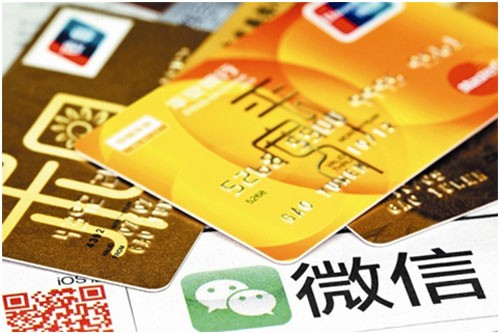
In 2013, it was witnessed that micropayment grows rapidly. E-commerce company Yixun.com owed by Tencent began to take on the business of Wechat payment. In the meantime, Alibaba endeavored to promote the taobao mobile shopping app. The two rivals was having a trial of strength in the dark
In August, Taobao l blocked the QR code image which led to the external links. This action definitely prevented the visit to Wechat. In November, Laiwang, a social networking app owed by Alibaba, carried out a promotional campaign on Double Eleven (November 11th). The sharing link was blocked by Wechat. Taobao fought back afterwards. When the taobao users clicked the links shared via Wechat, a download page of Taobao mobile app appeared. Acknowledged by Taobao, this conduct was designed for security concerns.
At the end of this year Taobao spent 36 million yuan to buy all arrangement of double color (a kind of welfare lottery) as gifts to all Taobao users. During the same time, Wechat also cooperated with Haidilao(a popular hot pot restaurant famous for their considerate service) about the micropayment. From the sparkling battle, it showed that these two foes exerted themselves to the utmost to seize the market opportunity.
No.9 Baidu VS 360
It’s quite a busy year for Qihoo 36O. On one hand, Qihoo was fighting a battle with Sogou browser, on the other hand Qihoo created another battle with Baidu search engine. The story began in November. 36o Company developed a new function of double clicks of Ctrl and then posted the slogan” Double clicks of Ctrl, to know faster” on their official Weibo and @Baidu. After two days, Baidu responded with the edited poster originally made by 360 Company. On the edited poster, it’s written “The winner will be working on the product,whereas the loser can only bully others “
After seeing the edited poster, 360 pursued and attacked with the poster written “How dare someone to declare originality when he will even plagiarize the poster” Two hours passed by, Baidu promptly launched a hand-writing poster and a set of posters to criticize back the plagiary of 360 products. In the next day, 36O launched the fourth set of posters with only characters to satirize the originality of Baidu products. In these short four days, the opponents fought 3 rounds back and forth with around 30 posters at an astonished speed.
No.10 Yixin VS Wanglai VS Wechat
Yixin, a free social networking app launched by China Telecom and the internet company NetEase in 2013 August, had currently become a competitive rival against Wechat, Weixin in Chinese. Alibaba joined this intense competition afterwards in September, and developed an app named Laiwang.
In this fierce battle, Yixin placed lots of advertisement in Weibo and subway with ironic words, attacking the number limit of group chat, the service of charging expression and the abusive articles of chick soup for souls. Immediately after the incident, Laiwang, criticized that Wechat intentionally blocked the linking from the friend circle shared in Laiwang, and launched a series of print ads attacking the monopoly behaviors conducted by Wechat, appealing to the Wechat users to literally “open the social circle and dismantle the wall”. Wechat responded with a counterattack and informed the opponent not to play tricks and hype up the crowd. They claimed that the truly good products was made not hyped.
It seemed that Laiwang and Yixin still had long way to go in the competition with WeChat which launched earlier and seized the main market at the early stage with more than 300 million users. As to the vast majority of users, the competition was obviously good for them since they could enjoy better service from the competition.
